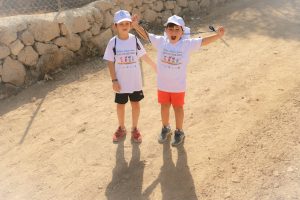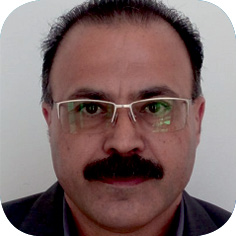Palestine, with its geographical location, climate, topography, civilizations, and hospitable, welcoming people, is a country that deserves a patient walk through its fields and deep reflection on its natural and cultural heritage if one desires to learn about its people – a community with extensive experience in meeting tourists and one that takes pleasure in hosting them.
Palestine’s privileged geographical location on the eastern coast of the Mediterranean has made it the center of the ancient world, Asia, Europe, and Africa. In addition, Palestine enjoys a moderate climate and diverse topography, from its highlands to its valleys and plains, and it is home to varying climates and great diversity among its flora and fauna.
Palestine is also regarded as the spiritual home of Christians, Muslims, Jews, and Samaritans. It is the home of the three monotheistic religions and holds a sacred spot in the hearts of millions of devoted followers of these religions who are motivated to visit the holy cities and sites of Palestine and to celebrate religious feasts here.

In terms of its cultural heritage, the archaeological sites in Palestine are characterized by their diversity, influenced as they are by neighboring civilizations and several empires that have passed through this land leaving a historical legacy.
Palestinian society is an open and diverse society with its history extending back 12,000 years to the indigenous Natufian culture. The Palestinian people are an extension of the indigenous peoples of historical Palestine who embraced the three divine religions, Judaism, Christianity and Islam, in addition to the Samaritans who were living in Palestine before the emergence of the Zionist movement.
Despite all the difficulties that face the Palestinian people, tourists who visit find a hospitable and friendly nation whose people love life. Visitors who walk along touristic and historical trails will be welcomed by the local community with a delicious meal and a home in which to rest in a warm family atmosphere.
Touristic trails
Organizing hikes along trails in a country such as Palestine, with its nature, cultural heritage, hospitable people, clean environment, and diverse topography takes considerable effort. To celebrate this natural cultural richness, many institutions and organizations offer several tour adventures that include visits to marginalized villages that allow participants to encounter local people and discover enjoyable Palestinian accommodations and traditional Palestinian cuisine.

This kind of tourism has merged with the local economies as local communities have become actively invested in national tourism. Villages that have been historically marginalized are now included in these efforts, giving Palestinian women the chance to work in the tourism field and improve their income without leaving their villages or their children. Through this initiative, several families have become partners in these tours and owners of private businesses, which helps to guarantee the sustainability of tourism activity. In addition, several institutions and community organizations – such as Masar Ibrahim al-Khalil (https://masaribrahim.ps/), Siraj Center for Holy Land Studies (https://www.sirajcenter.org/index.php/en/), and Rozana Association for Rural Tourism (http://rozana.ps/en/?avada_portfolio=sufi-trails) – are involved in preparing and developing various tour segments that include sports and other entertainment activities.
The particularity of the tour-guiding profession in Palestine
Tour guiding and the local community: Local communities, wherever they are in the world, do not seem very concerned with the guiding material used by tour guides. For this reason, the material is not normally considered to be controversial or the subject of analysis. In Palestine, however, the situation is different. The political reality precipitated by the Zionist occupation actively imposing its religious and historical claim to the land has resulted in Palestinian guiding material and touristic proficiency to be put into question by those with little or no knowledge of the present political reality or those who have been influenced by Zionist propaganda.

Furthermore, given that the occupation influences all aspects of Palestinian life, the profession of tour guiding is also influenced by the occupation policy, which complicates the work of Palestinian tour guides. In other words, the exceptional political and geographic situation created by the occupation negatively impacts the tour-guide profession. Palestinians object to the falsification and the exploitation of the biblical narratives by the Zionist movement, which uses them as a pretext to facilitate its settlement expansion and to legalize its occupation of Palestinian land.
Competition and unemployment: Israel violates international laws and conventions by controlling permit issuance for Palestinian tourist guides. Palestinian permits are classified as either “General” or “West Bank”; the latter category denies them permission to practice in East Jerusalem or within 1948 Palestine. This creates unfair competition with Israeli tourist guides who are free to cover Palestinian historical sites without restrictions.
Community guiding: Palestinian tour guides are classified into many categories, including that of community tour guide – a guide who focuses on the environment and nature. The practice of community guiding is rather complicated because it requires familiarity with and knowledge of the natural surroundings as well as proficiency in dealing with emergencies, such as taking care of stings, fractures, and sudden sickness. Community guides need to know the trails, the itinerary, the guest houses, and the available facilities along the tour route. Thus, all guides must be trained in first-aid procedures, and they must also have an evacuation plan for injured tourists, if needed. The tour guide should be well informed about wildlife: bird species, animals, plants, and rocks; in addition to knowing about the historical and archeological sites that may exist along the trail. In other words, Palestinian guides need to have a comprehensive training program that provides a foundation in basic as well as alternative tourism.

How to improve the profession of tour guiding in Palestine
My doctoral research focused on the procedures that would improve the profession of tour guiding in Palestine. It is important to note that the Israeli occupation is the main obstacle to addressing many of the challenges that face Palestinian tour guides. Unfortunately, this obstacle is not within the capabilities or jurisdiction of the Palestinian Ministry of Tourism and Antiquities to solve. The occupation of East Jerusalem and the absence of an airport and borders that are under the control of the Palestinian Authority all contribute to the tourism sector being subject to racist procedures and unfair competition.
In other words, Palestinian tour guiding suffers directly from the Israeli occupation and its racist procedures.
However, and despite all, even in its limited capacities, the Palestinian Ministry of Tourism and Antiquities could adopt procedures that would enhance the situation of tour guides and prevent their being abused. It should coordinate with the Ministry of Higher Education to develop a bachelor’s degree program in tour guiding. Current diploma programs are simply not enough and lack the required curriculum areas such as teaching additional languages, offering students additional courses on ancient and contemporary Palestinian history, geography, etc.
This article has attempted to show that despite the country’s hardships and diverse circumstances and challenges, Palestinians are well aware of the importance of trekking and of creating and organizing trails that engage local communities for the benefit of all. We’re not there yet, but we are certainly on the right track.
Article photos courtesy of Masar Ibrahim Al Khalil.


